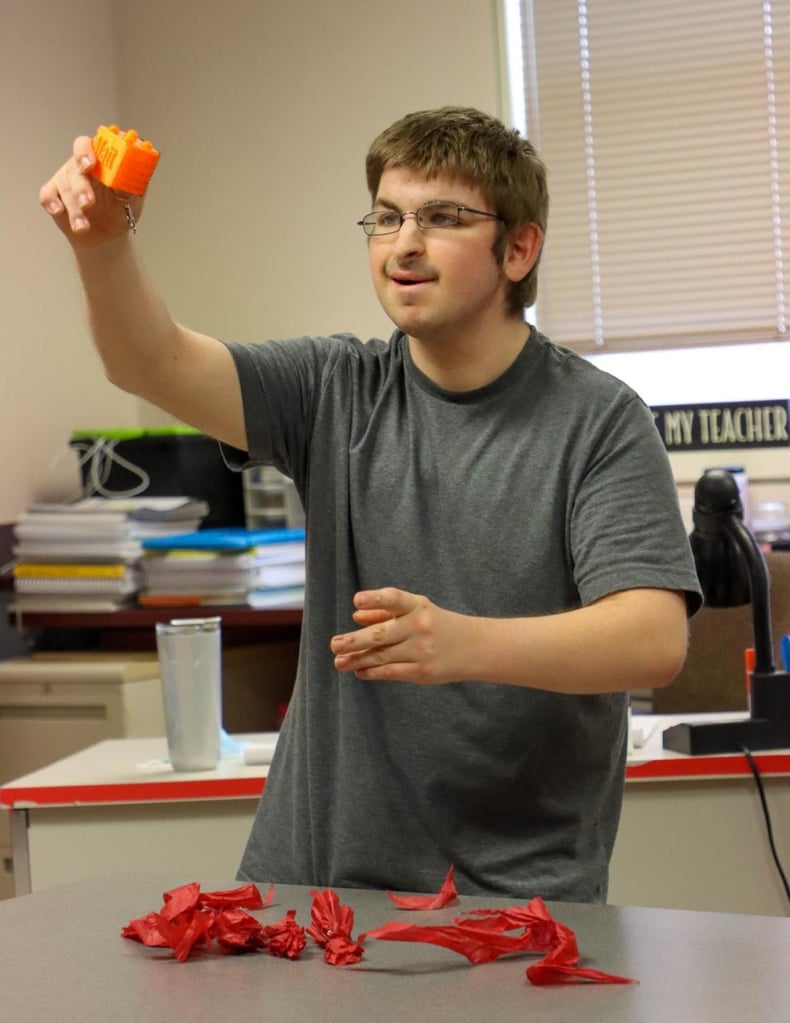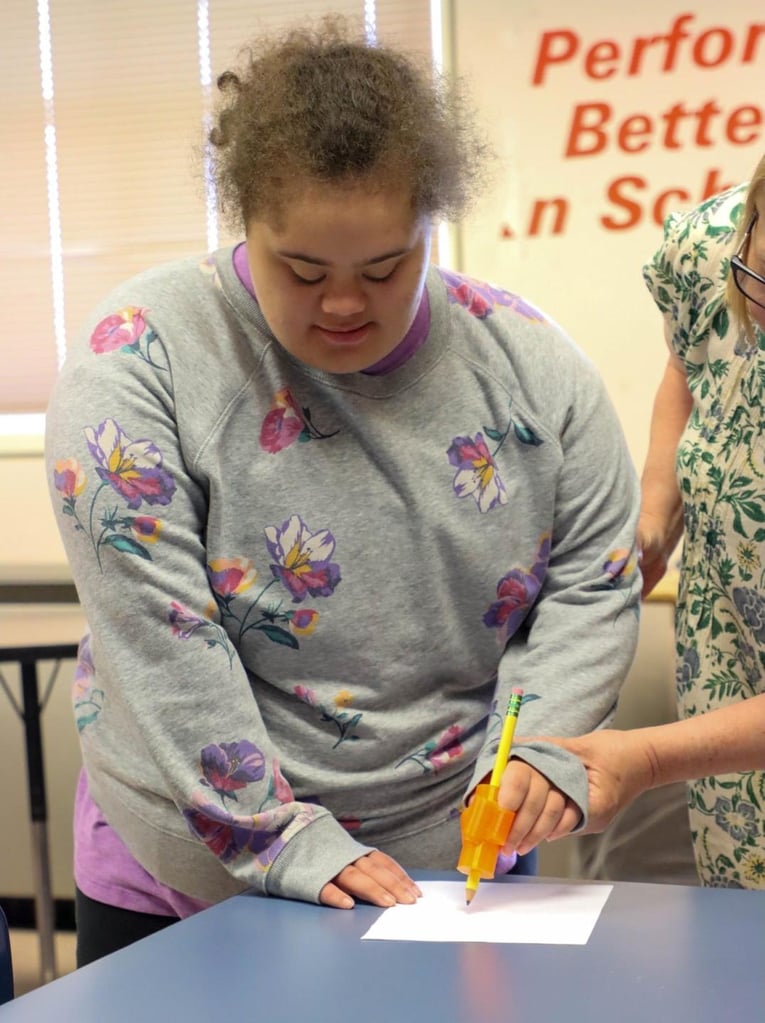PLYMOUTH — Pilgrim Area Collaborative (PAC) Executive Director Dr. Dympna Thomas wishes to thank and recognize students from Plymouth South Middle School for creating, designing and printing 3-D adaptive devices for PAC students.
Three students from PAC’s Transitional Skill Program, which is located next door to PSMS teacher Allison DeBellis’ technology classroom, were gifted 3-D adaptive devices by PSMS students participating in the Hope Project.
Each year, DeBellis challenges her students to design a device to help others perform a task that may be painful or difficult as part of the project.
This year the project took on a unique turn when DeBellis’ students noticed that one of their PAC neighbors needed assistance opening the door every time they went to use the restroom. One eighth-grader had the idea to create a key attachment that would help the PAC student open the door, giving them a sense of independence. This act of empathy sparked a new direction for the project.
PSMS students coordinated with PAC teachers Tammy Hall and Paula Jean, and talked with the PAC students to find areas they needed assistance with in order to create devices to help them to foster growth and independence.
After many designs, prototypes, and redesigns, PSMS students 3-D printed the perfected designs. The devices included:
- Matt’s Sensory Cube: PAC student Matt Reed of Wareham was gifted a sensory cube that was created by PSMS students Lily Whalen And Sammi Sampson. The cube, which was fitted to comfortably sit in Reed’s hands, will help him to stay focused during the day.
- Olivia’s Pencil Grip: PAC student Olivia Crosby of Randolph was gifted a pencil grip that was created by PSMS students Cormac Ireland and Gabriel Bom Conselho. The device will provide Crosby with an easier way to use a pencil.
- Colin’s Headphone Holder: PACstudent Colin Sullivan of East Bridgewater was gifted a headphone holder that was created by PSMS students Lucas Spooner and Savon Sequeira. The holder will be a helpful place for Sullivan to store his earbuds so that they do not get tangled.
“Thank you to our Plymouth South Middle School neighbors for all of their hard work in designing these thoughtful gifts,” Executive Director Thomas said. “Students took the time to evaluate the unique needs of three of our students to create one-of-a-kind devices. All of our students were so thrilled with their gifts. Fantastic job to everyone who took part.”
Each device was monogrammed with the students’ name
“It is easy to forget that tasks many of us consider easy may actually be difficult for others. Learning these differences and understanding the needs of others is a crucial part of fostering a culture of awareness and inclusivity,” Massachusetts Organization of Educational Collaboratives Executive Director Joanne Haley Sullivan said. “Thank you to these Plymouth South Middle School students for acting with compassion, designing these unique devices, and raising awareness about these needs.”
About the Pilgrim Area Collaborative’s Transitional Skills Program
The Pilgrim Area Collaborative’s Transitional Skills Program is offered to students ages 18 to 22 who have moderate to intensive learning challenges and a wide range of concomitant abilities. The curriculum incorporates a variety of teaching methodologies designed to help students generalize skills from the classroom to real-life situations. As students age upwards toward adulthood, experiences transition from classroom activities to real life expectations in the community. Academic proficiency, activities of daily living and employment competencies are gradually moved from the controlled environments of the classroom and school buildings to the realities of public places, volunteer and job development opportunities, and social situations in community environments. By participating in meaningful community-based activities with naturally occurring cues and prompts, students are provided opportunities to learn in real world environments, doing meaningful activity among typical adults in the community.
To learn more about collaboratives with similar learning programs in your region, please visit MOEC’s website here.
About Massachusetts Organization
of Educational Collaboratives
MOEC represents the Commonwealth’s 25 educational collaboratives. MOEC serves as the voice of its members and works to develop a full appreciation for and understanding of educational collaboratives at the state, regional, and local levels. MOEC is the Commonwealth’s primary advocate for collaboratives and the critical role they play in the Massachusetts educational system.
###



